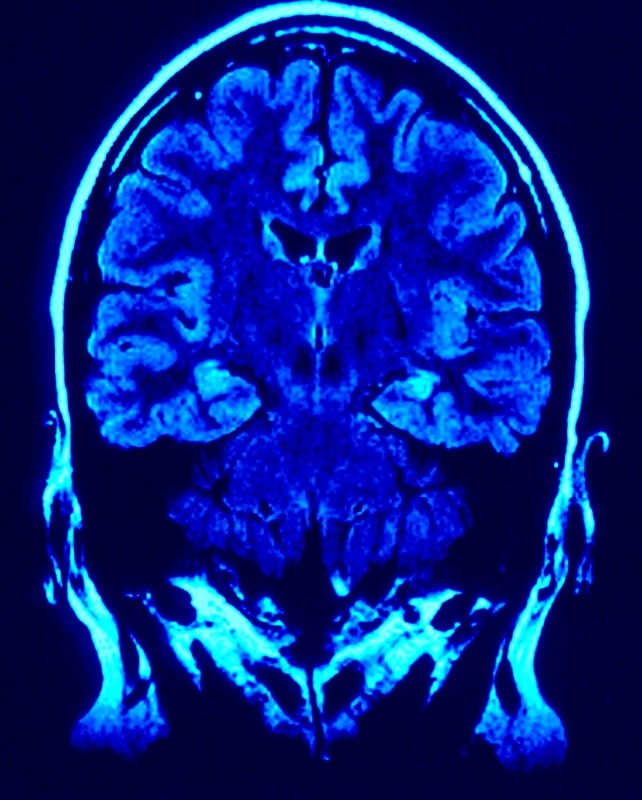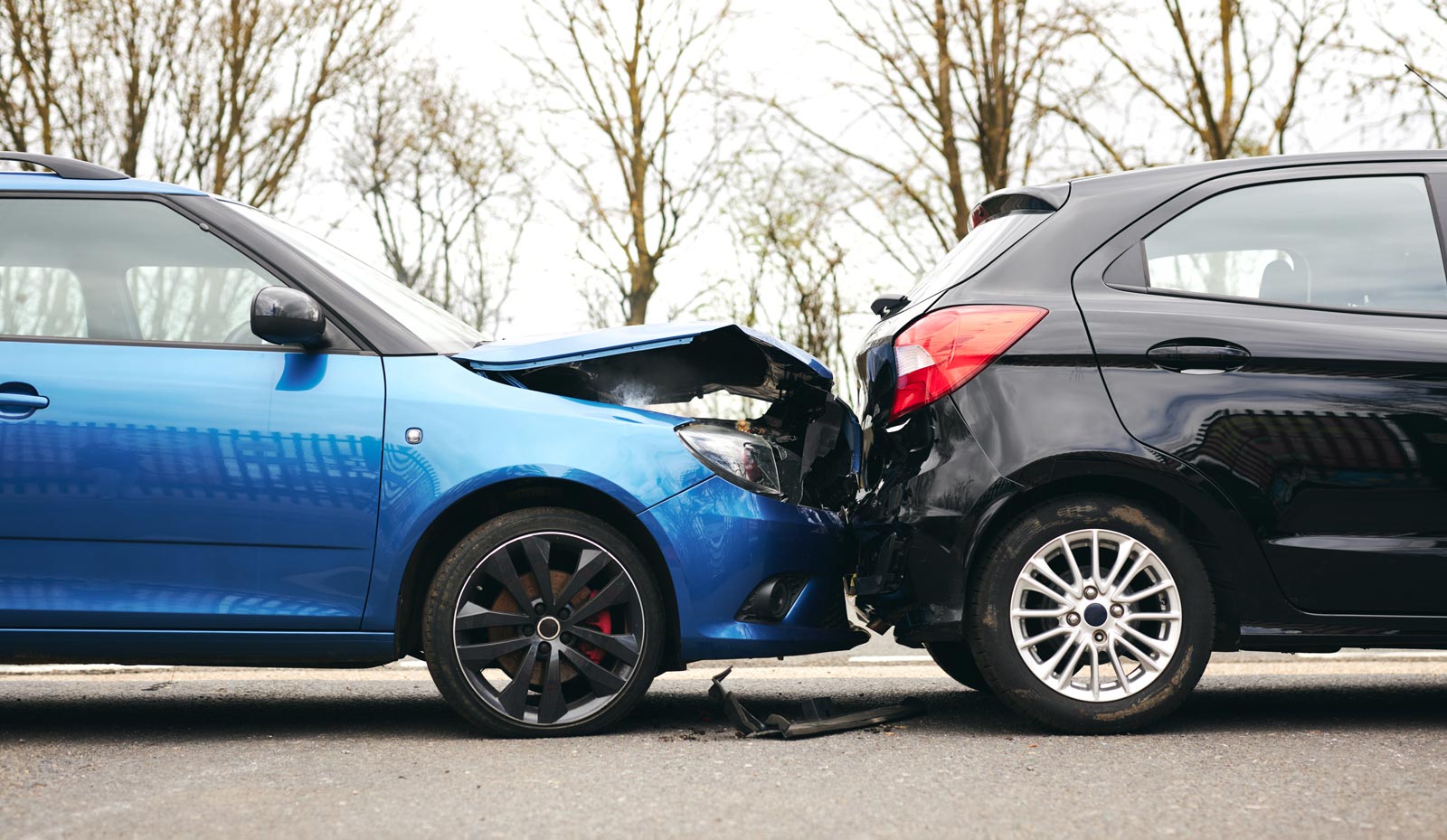Traumatic brain injuries (TBIs) are perhaps the most misunderstood among the injuries that victims often suffer in car crashes. Most people associate TBIs with combat veterans, professional athletes, and coma patients.
However, mild traumatic brain injuries (mTBIs for short; also known as concussions) are a common occurrence in people who have been in a car wreck. Their name is also misleading: so-called “mild” TBIs can lead to serious and debilitating symptoms, and they’re often difficult to diagnose.
What Is a Traumatic Brain Injury?
Traumatic brain injuries (TBIs) occur when a victim suffers a hit or jolt to the head, causing injury to the brain. In more severe cases, they can even involve an object piercing the skull and injuring brain tissue directly.
Brain trauma is common during a car accident. In fact, some studies suggest that roughly half of all TBIs occur during car crashes.
There are four common types of traumatic brain injury:
- Concussion: Although they’re technically the least severe form of TBI, concussions can still be devastating. During a concussion, the brain’s blood cells and nerves suffer stretching and general trauma. This can lead to headaches, nausea, vomiting, slurred speech, seizures, and other symptoms.
- Contusion: A technical term for a bruise on the brain. Sometimes, an impact is forceful enough to cause contusions on multiple parts of the brain. Large contusions frequently require brain surgery.
- Diffuse axonal injury (DAI): Axons are long, thread-like nerve fibers that send information between nerve cells. Trauma can tear and stretch these delicate and important fibers, causing chemicals to be released that can further damage the axons. A severe DAI is potentially life-threatening.
- Penetration: Potentially the most serious type of brain injury, in which an object pierces the skull and damages brain tissue.
RELATED VIDEO: What Is a Traumatic Brain Injury?
Nine out of ten TBIs are mild or moderate. Doctors consider a mild traumatic brain injury to be one that involves a very brief loss of consciousness, a short period of amnesia, and brain imaging studies that appear normal. With a moderate TBI, on the other hand, you might lose consciousness for up to a few hours, and MRI or CT scans of your brain may show visible abnormalities.
“Studies show that many victims of mTBIs suffer from ongoing cognitive, emotional, and physical problems.”
“Mild” TBIs Can Cause Serious Symptoms
Many mild TBIs resolve quickly on their own. However, some victims face a much longer and more challenging recovery. It can take a year or more to recover from a severe concussion, especially if the brain suffered axonal damage.
Studies show that many victims of mTBIs suffer from ongoing cognitive, emotional, and physical problems. These may include:
- Chronic headaches and pain
- Decreased attention and concentration
- Slowed thinking and “fogginess”
- Problems completing tasks
- Fatigue
- Dizziness
- Memory problems
- Mood changes and other emotional issues
- Anxiety
- Depression
- Difficulty maintaining personal relationships and/or employment status
RELATED EBOOK: 4 Signs You Might Have an Undiagnosed Traumatic Brain Injury
The Challenge of Diagnosing a “Mild” TBI
Mild TBIs can be difficult to diagnose. Unfortunately, many standard diagnostic studies like MRIs and CT scans can’t detect microscopic damage (“microtrauma”) to your brain. If your x-rays and scans come back “normal,” it doesn’t mean you don’t have a brain injury, especially if the scan was performed using older technology.
RELATED CLIENT STORY: Client With “Mild” Brain Injury Secures Settlement Against Trucking Company
Some studies suggest that fewer than 10% of mild TBI sufferers have abnormal brain imaging studies. This is due in part to the differing quality of imaging technologies as well as the varying skill of the radiologists who read the scans. While cutting-edge diffusion tensor imaging (DTI) and some newer MRI machines can identify microtrauma in brain tissues, older machines don’t take enough image slices to pick up these injuries. If your CT or MRI machine was older, if your physician didn’t request contrast dye, or if the radiologist wasn’t looking for microtrauma, you might get a “normal” scan result even though your brain has suffered real and serious damage.
Seek Help From an Experienced TBI Lawyer if You Have TBI Symptoms but Receive “Normal” Test Results
Unfortunately, these “normal” scans also give the insurance company an excuse to dispute victims’ claims and deny them benefits. If you’re experiencing brain injury symptoms but the insurance company denies your liability, personal injury protection (PIP) or uninsured/underinsured motorist (UI/UIM) claim, you should immediately contact an experienced TBI lawyer for help.
When the team at Crosley Law works with a TBI victim, we carefully investigate the facts surrounding the crash, the injury mechanism, the reported symptoms, any physical and neuropsychological findings, and other important data. We also work with leading experts, including neuropsychologists and neuroradiologists, to identify and explain the causes of our clients’ crash-related symptoms.
Finally, we take time to understand our clients’ circumstances and calculate their unique damages. For example, the Crosley team at one point represented a very young TBI victim. Even though the child was meeting early developmental milestones, our experts argued that the child’s brain injury would impact the child’s still-developing executive functions, such as self-control, mental flexibility, and the ability to multitask. This information guided the family’s care choices and helped them understand the true value of their legal claims.
RELATED CLIENT STORY: Trampoline Park Injury Alter’s Teen’s Life Forever
Crosley Law: Advocating for San Antonio TBI and Concussion Victims
Crosley Law’s personal injury team has extensive experience handling traumatic brain injury claims. If you’d like to learn more about our cutting-edge approach to TBI litigation and our client-focused services, complete our online form or call us at 210-LAW-3000 | 210-529-3000. Initial consultations are always free.
References
American Academy of Neurology (AAN). (2014, July 16). Even mild traumatic brain injury may cause brain damage. ScienceDaily. Retrieved from www.sciencedaily.com/releases/2014/07/140716165202.htm
Bitonte, R., Tribuzio, B., Hecht, K., & DeSanto, D.J. (n.d.). Mild traumatic brain injuries were previously undiagnosable, and therefore treatment uncertain, and damages speculative. International Brain Injury Association. Retrieved from http://www.internationalbrain.org/mild-traumatic-brain-injuries-were-prev-undiagnosable-therefore-treatment-uncertain-and-damages/
Croall, I. D., Cowie, C. J. A., He, J., Peel, A., Wood, J., Aribisala, B. S., … & Blamire, A. M. (2014, July 16). White matter correlates of cognitive dysfunction after mild traumatic brain injury [abstract] (10.1212/WNL.0000000000000666; DOI: 10.1212/WNL.0000000000000666). Neurology: The Official Journal of the American Academy of Neurology. Retrieved from http://www.neurology.org/content/early/2014/07/16/WNL.0000000000000666
The content provided here is for informational purposes only and should not be construed as legal advice on any subject.









